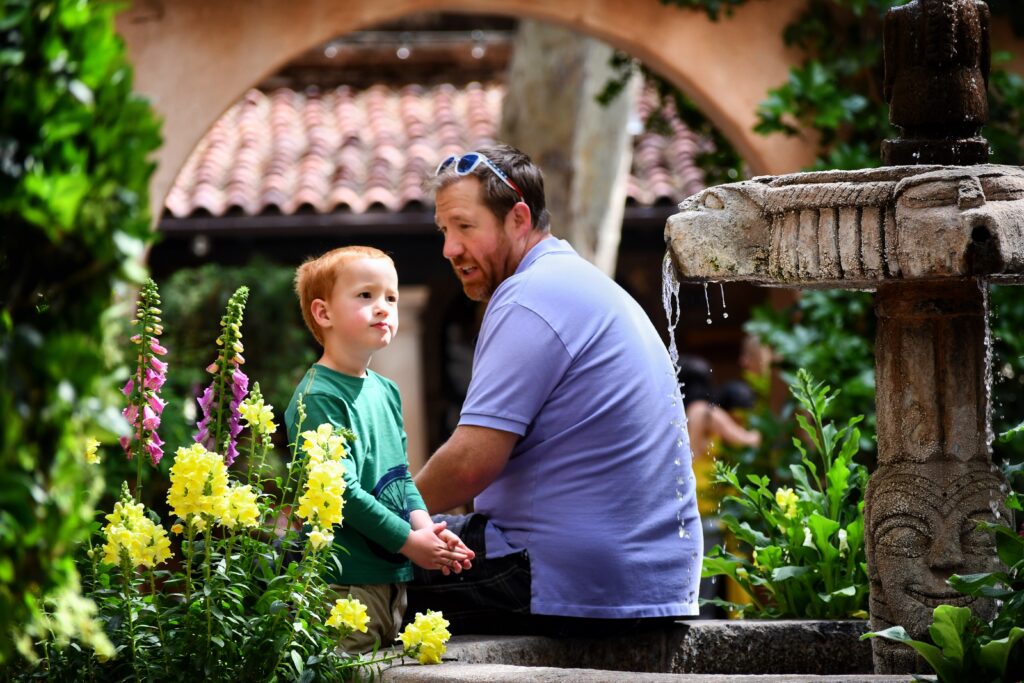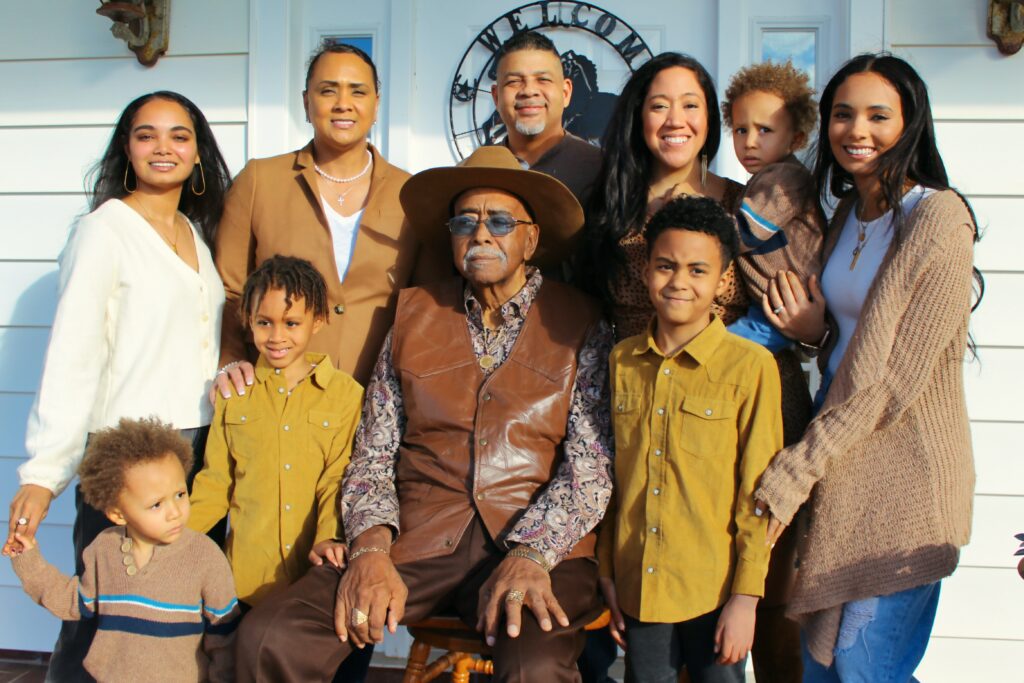¿Es "Padre Celestial" Sólo Un Título o un Papel Activo?
Find God’s Unconditional Love Demonstrated Through His Fatherly Actions in Your Life

For many years I have accepted by faith that God is my heavenly Father. Some people refer to Him as “God the Father.” I have heard it said that people who have had challenging, if not downright horrible experiences with their earthly fathers will have difficulty accepting God as their heavenly Father. Although I did not grow up with a consistent father figure in my life – my mother was married and then divorced four times before I graduated from high school – I didn’t struggle with accepting God as a heavenly Father. But the reason I didn’t struggle is because I just accepted the term “heavenly Father” or “God the Father” as one of God’s many names or titles, such as I Am (Exodus 3:14), Jehovah (Psalm 83:18), Rock (Deuteronomy 32:4), Redeemer (Isaiah 41:14), Refuge (Isaiah 25:4). The name didn’t mean much to me. I didn’t view God as an active Father.
A medida que seguía a Jesús y buscaba conocerlo mejor a través de la oración y la lectura de la Biblia, Él comenzó a mostrarme cómo Él había sido mi Padre de una manera activa a lo largo de mi vida. En una serie de publicaciones en el blog, compartiré con ustedes algún aspecto de Dios que refleja cómo esperamos que nuestros padres terrenales nos críen, pero Dios lo hace de una manera mucho mejor. En esta primera publicación, presentaré a Dios como un Padre activo. Tanto como si ha tenido un padre bueno y constante en su vida como si no, siga leyendo para descubrir cómo le ha criado Dios.
Dios Nos Cría Activamente
Todos tenemos un Padre celestial que nos ama (1 Juan 3:1). Como cristianos, sabemos que Jesús es nuestro Padre Eterno (Isaías 9:6). Sin embargo, a menudo aceptamos "Padre Eterno" como uno de los títulos de Jesús sin reconocer que Él nos cría de forma activa. En los próximos párrafos, compartiré sólo algunos ejemplos de cómo Jesús me ha criado, los cuales desarrollaré en publicaciones futuras.

Usualmente, vemos a los padres como modelos a seguir en nuestra vida. Nos enseñan cómo comportarnos en la sociedad y en nuestros propios hogares cuando llegamos a la adultez. Si no nos han amado y protegido como necesitábamos durante la infancia, tendemos a temer ser como ellos cuando seamos adultos. Pero no tenemos que ser como ellos. De hecho, nuestro Padre celestial, a través del Espíritu Santo, nos hace semejantes a Cristo: “Por tanto, nosotros todos, mirando a cara descubierta como en un espejo la gloria del Señor, somos transformados de gloria en gloria en la misma imagen, como por el Espíritu del Señor.” (2 Corintios 3:18). Dios nos cría formándonos a Su imagen y ayudándonos a madurar para ser como Cristo. Cuando no sentimos el amor de nuestros padres, viéndolos tal vez como carentes de paciencia y mansedumbre hacia nosotros, no debemos temer que nosotros también seamos impacientes y duros. Al reflexionar sobre nuestra vida, veremos que Dios nos ayudó a madurar en el fruto del Espíritu, el cual es “amor, gozo, paz, paciencia, benignidad, bondad, fe, mansedumbre, templanza […]” (Gálatas 5:22–23). Una de las maneras en que Dios nos cría es ayudándonos a convertirnos en adultos responsables, cariñosos y maduros.

God also fathers us by loving us unconditionally. When our parents aren’t consistent in their love for us, we begin feeling unloved. We may even wonder if God can possibly love us if our own parents didn’t fulfill that basic role of a parent. When God told Jeremiah, “I have loved thee with an everlasting love” (Jeremiah 31:3), He did not mean this for Jeremiah’s ears only. God loves us (you and me) with an everlasting, unconditional love. No hay nada que podamos hacer para acabar con Su amor por nosotros.Él nos colma de Su gran amor, llamándonos hijos de Dios (1 Juan 3:1). ¿Cómo lo sabemos? Porque cuando el pecado entró en el mundo a través de Adán y Eva y nos separó de Dios (Génesis 3:22-24; Romanos 5:12), Él vino al mundo y murió en nuestro lugar para que nuestra relación con Él pudiera ser restaurada (Romanos 5:8; 1 Juan 2:2). Incluso hoy en día, cuando nos equivocamos, cuando fallamos, Dios sigue amándonos. No hay nada que podamos hacer para quedar fuera del amor de Dios.
Y para mi último ejemplo, por favor, considere cómo todos anhelamos ser parte de una familia sana y funcional. Cuando hemos sido criados en disfunción con padres ausentes, ya sea física o emocionalmente ausentes, soñamos con ser parte de una familia cohesiva. Y eso es exactamente lo que Dios nos proporciona cuando nos convertimos en parte de la familia de Dios.
Dios crea una familia sana y amorosa entre Sus hijos (Salmos 68:6). Tenemos hermanos y hermanas cristianos que caminan por la vida con nosotros. Se nos enseña a ser buenos unos con otros (Gálatas 6:10) y a alegrarnos mutuamente cuando uno de nosotros es honrado (1 Corintios 12:26). Cuando uno de nuestros hermanos sufre, sufrimos todos juntos (1 Corintios 12:26). Jesús mismo fue un ejemplo de amor para nosotros y nos enseñó a amarnos unos a otros como Él nos amó (Juan 13:34).

En esta familia se nos dan ancianos que nos guían como lo harían los abuelos, los padres, los tíos en una familia sana y natural. Se nos instruye a no reprender a nuestros ancianos, sino a mostrarles respeto alentándolos como lo haríamos con nuestros padres (1 Timoteo 5:1-2). Y los ancianos deben enseñar a las generaciones más jóvenes cómo vivir y comportarse (Tito 2:2-5). En la familia de Dios se nos ha dotado de todo lo necesario para vivir en amor, funcionando como la familia sana que todos hemos soñado. Esta familia se reúne y se anima entre sí (Hebreos 10:24-25).
La familia de Dios no es perfecta; después de todo, está compuesta por seres humanos. Tenemos rivalidad entre hermanos. A veces los hermanos se pelean y se quejan porque cada uno siente que sus padres tratan mejor a los otros hermanos, por ejemplo, pasando más tiempo con ellos o comprándoles cosas mejores y más lindas. De igual manera, los hermanos y hermanas cristianos pueden molestarse porque sienten que el pastor o el director de música les da a otras personas más oportunidad de ministrar, como hablar en los servicios de la iglesia o de cantar cantos especiales con más frecuencia. Tenemos a los más jóvenes poniendo a prueba los límites de los mayores. A los hermanos mayores les sigue gustando cantar himnos, mientras que los más jóvenes prefieren las canciones de alabanza más animadas, y van a sobrepasar los límites de las canciones tradicionales. Pero Dios da instrucciones para manejar estas cosas de una manera amorosa y saludable. Debemos ser misericordiosos, bondadosos, humildes, mansos, pacientes y perdonadores (Colosenses 3:12-13). Dios nos da una familia que es amorosa, funcional y cumple con todo lo que hemos soñado en una familia. ¡Él es nuestro Padre activo!
Dios Le Cría A Usted
En esta serie de publicaciones, compartiré con usted cómo Dios me crió a través de muchos eventos y circunstancias en mi vida. Yo no soy, y usted no es, huérfano, no importa cómo sean nuestras relaciones con nuestros padres terrenales. Usted no es huérfano aunque no haya conocido a su padre terrenal. Espero que al leer esta serie de publicaciones y ver cómo Dios me crió, piense en su propia vida y considere las áreas en las que su padre parece haberse quedado corto. Considere cómo Dios le ayudó a superar esas cosas. Reflexione sobre su propia vida y vea de nuevo cómo Dios le ha criado. Podemos estar confiados en que Dios nos cría activamente a lo largo de nuestra vida.

Adaptado de ¡Hola Papá, Soy Yo! Descubra al Padre Que Le Ama y Protege, que se publicará en octubre de 2021.

